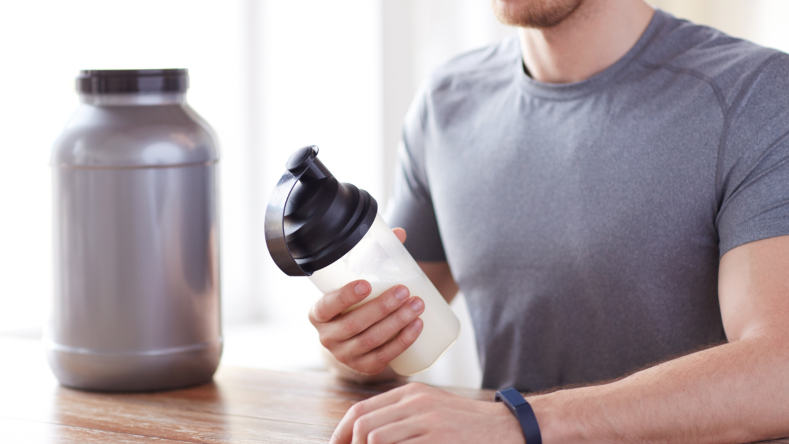How many protein shakes a day?
This question is about GLP-1 & Weight Loss and Nutrition
How many protein shakes you need per day depends on your protein needs, as this varies with age and can increase significantly with physical activity, injury, and/or illness. While you can get adequate amounts of protein through diet, protein powder can help bridge the gap for any deficiencies.
According to the Recommended Dietary Allowance (RDA), you need at least 0.8 g of protein/kg of body weight/day (g/kg/d) to meet the body’s most basic nutritional needs and between 1.0-2.0 g/kg/d if you are physically active [2,3, 4]. While you can meet these needs with dietary sources, you can supplement with protein shakes; for instance, if you’re trying to increase muscle, strength, or endurance, one to two protein shakes a day can help offset muscle damage and promote muscle repair after a workout [1].
However, be careful to not go overboard, as excessive protein consumption may cause digestive problems, such as nausea, bloating, cramping, flatulence, and diarrhea.

People also ask:
References:
Jäger, R., Kerksick, C.M., Campbell, B.I. et al. International Society of Sports Nutrition Position Stand: protein and exercise. J Int Soc Sports Nutr 14, 20 (2017).
https://doi.org/10.1186/s12970-017-0177-8
Panel on Macronutrients; Panel on the Definition of Dietary Fiber; Subcommittee on Upper Reference Levels of Nutrients; Subcommittee on Interpretation and Uses of Dietary Reference Intakes; Standing Committee on the Scientific Evaluation of Dietary Reference Intakes; Food and Nutrition Board; Institute of Medicine. (2005). Dietary Reference Intakes for Energy, Carbohydrate, Fiber, Fat, Fatty Acids, Cholesterol, Protein, and Amino Acids. National Academies. Retrieved April 6, 2022, from
https://nap.nationalacademies.org/read/10490/chapter/12
Thomas, D. T., Erdman, K. A., & Burke, L. M. (2016). American College of Sports Medicine Joint Position Statement. Nutrition and Athletic Performance. Medicine and science in sports and exercise, 48(3), 543–568.
https://doi.org/10.1249/MSS.0000000000000852
Jäger, R., Kerksick, C. M., Campbell, B. I., Cribb, P. J., Wells, S. D., Skwiat, T. M., Purpura, M., Ziegenfuss, T. N., Ferrando, A. A., Arent, S. M., Smith-Ryan, A. E., Stout, J. R., Arciero, P. J., Ormsbee, M. J., Taylor, L. W., Wilborn, C. D., Kalman, D. S., Kreider, R. B., Willoughby, D. S., Hoffman, J. R., … Antonio, J. (2017). International Society of Sports Nutrition Position Stand: protein and exercise. Journal of the International Society of Sports Nutrition, 14, 20.
https://doi.org/10.1186/s12970-017-0177-8
